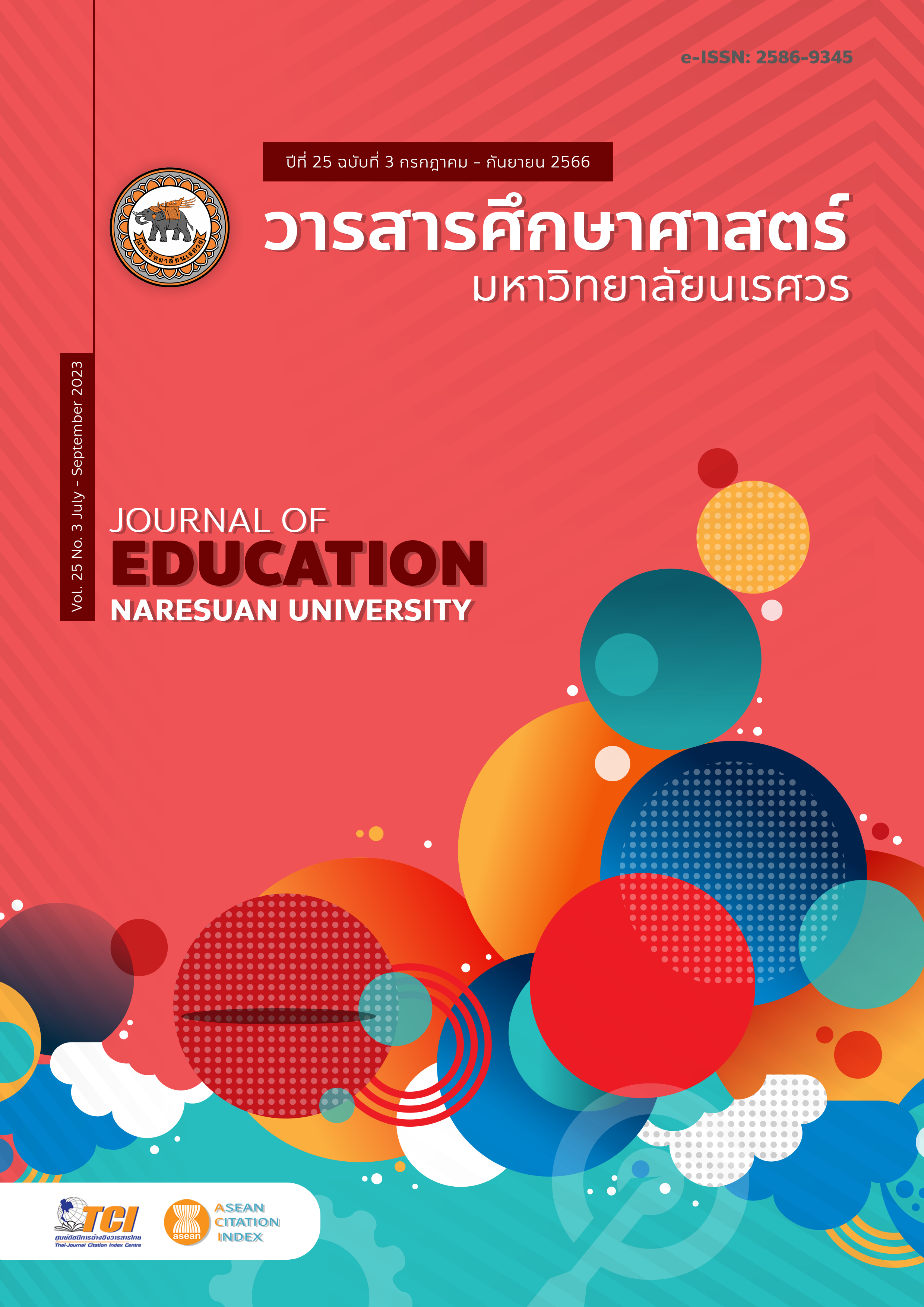CURRICULUM DEVELOPMENT OF "ENTREPRENEURSHIP" CLUB ACTIVITY IN ACCORDANCE WITH THE CONCEPT OF INTELLECTUAL TRAINING FROM THE PROTOTYPE FOR HIGH SCHOOL STUDENTS การพัฒนาหลักสูตรกิจกรรมชุมนุม “การเป็นผู้ประกอบการ” ตามแนวคิดการฝึกทางปัญญาจากต้นแบบ สำหรับนักเรียนชั้นมัธยมศึกษาตอนปลาย
Main Article Content
Abstract
The purposes of this study was to research and develop curriculum of "Entrepreneurship" club activity. Research methods used Research and Development process. There were 4 steps in conducting the research as follows; Step 1: Studied the information necessary to develop the curriculum for "Entrepreneurship" club activity from 2 entrepreneurs, 2 teachers of Career Learning Department, and 10 students of Uttaradit Daruni School By using the questionnaire. Step 2: Developed a curriculum for "Entrepreneurship" club activity in which 5 experts would examine the suitability of the course and the course material. The research instruments were curriculum and supplementary documents for the "Entrepreneurship" club activity and the assessment of the suitability of the course and the course documentation. The statistics used in the analysis were the Mean and Standard Deviation. Step 3: Conducted the trial "Entrepreneurship" club activity trial by accordance with the concept of intellectual training. The sample group used was 10 students of Uttaradit Daruni School who applied to participate in the "Entrepreneurship" club activity. Used ‘One- Group Post-test Design’ in research plan. The instrument used in the research was an entrepreneurial proficiency assessment form. The statistics used in the analysis were Mean, Standard Deviation, T-Test Dependent Samples and Content Analysis. Step 4: Studied the opinions of learners towards learning according to the “Entrepreneurship” club activity curriculum. Research tools were questionnaire for learners' opinions towards learning according to the “Entrepreneurship” club activity curriculum. Statistics used for analyzing were Mean, standard deviation. The results presented:
1. The necessary information for the development of contents 1) business knowledge demanding, 2) working competency leaning ability, and 3) business conditions on teaching and learning activities were very much participated by students. Measurement and Evaluation were used by the actual condition.
2. The curricular element as following 1) backgrounds, 2) principles, 3) proposes, 4) learning core, 5) curriculum structure, 6) learning management guidelines, 7) learning media, and 8) measurement and evaluation. The course suitability were the greatest level of ( = 4.42, SD = 0.50).
3. The entrepreneurial proficiency assessment’s score was above the average by 70% with statistical significance at the level of .05.
4. In general, the students had a high level of agreement with the curriculum of the “Entrepreneurship” club activity ( = 4.56, SD = 0.41).
Article Details

This work is licensed under a Creative Commons Attribution-NonCommercial-NoDerivatives 4.0 International License.
The owner of the article does not copy or violate any of its copyright. If any copyright infringement occurs or prosecution, in any case, the Editorial Board is not involved in all the rights to the owner of the article to be performed.
References
Bandura, A. (1989). Human agency in social cognitive theory. American Psychologist, 44(9), 1175–1184. https://doi.org/10.1037/0003-066X.44.9.1175
Buason, R. (2009). Research and development of educational innovations. Bangkok: Khamsamai. [in Thai]
Buasri, T. (1999). Design and development course theory (2nd ed.). Bangkok: Pattanasuksa. [in Thai]
Chuerattanapong, J. (1996). Curriculum development: principles and practices. Bangkok: Alyn Press. [in Thai]
Collins, A. (2006). Cognitive Apprenticeship. In R. K. Sawyer (Ed.), The Cambridge handbook of: The learning sciences (pp. 47–60). Cambridge University Press.
Fosnot, C. T. (2013). Constructivism: theory, perspectives, and practice. New York: Teachers College Press.
Kraipeerapun, K. (2007). A Development of ethnobotany curriculum for promoting scientific mind through local involvement: Ban Kiriwong Community, Lansaka District, Nakhon Sri Thammarat Province case. Bangkok: Chulalongkorn University. [in Thai]
Leeaumnonkul, P. (2010). Research and development of a junior entrepreneur curriculum based on cognitive apprenticeship approach to enhance business competence of upper secondary school students. Bangkok: Chulalongkorn University. [in Thai]
Office of the Education Council. (2004). Academic conference of educational administration research. Bangkok: Charoen Phon Printing and Cover Making. [in Thai]
Prachanban, P. (2009). Research methods in social sciences. Phitsanulok: Rattanasuwan Printing. [in Thai]
Tantivorawong, V. (2014). A proposed model of corporate governance characteristics development of small and medium entrepreneur for undergraduate students majoring business administration by using cognitive apprenticeship in social network. Bangkok: Chulalongkorn University. [in Thai]
Utranan, S. (1989). Curriculum theory. Bangkok: Chulalongkorn University. [in Thai]
Vygotsky, L. S. (1981). The Genesis of Higher Mental Functions. In J. V. Wertsch (Ed.) The Concept of Activity in Soviet Psychology (pp. 144-188). Armonk, NY: M.E. Sharpe.


